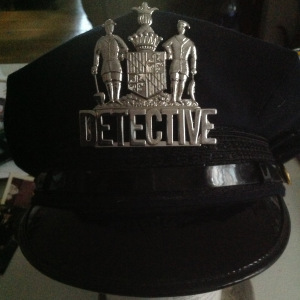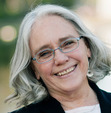Edith Maxwell's Blog, page 278
August 28, 2014
Murder on the Orient Express
by Barb, who is home in Boston after two and a half blissful weeks in Paris
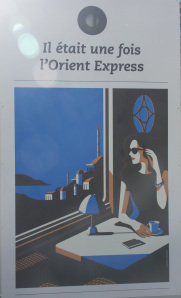 I was excited last week when Julie posted her blog about one of the greats, Agatha Christie. There was even a bit of a discussion in the comments on that blog of Murder on the Orient Express.
I was excited last week when Julie posted her blog about one of the greats, Agatha Christie. There was even a bit of a discussion in the comments on that blog of Murder on the Orient Express.
I’m a long time Christie lover. Hers were the books I moved to when I outgrew the Nancy Drews. To me, they will always evoke rainy days at my grandparents’ summer home in Watermill, Long Island, when you could lay around all day and read an entire book. That same grandmother took me to see Margaret Rutherford in Murder She Said, when I was nine. Scared the bejesus out of me.
 So when I heard the Museum of the Arab World was having an exhibit of the Orient Express rail cars while I was in Paris, I was all over it.
So when I heard the Museum of the Arab World was having an exhibit of the Orient Express rail cars while I was in Paris, I was all over it.
The Orient Express was a lot of trains and a lot of routes, but the best known was Paris to Istanbul. It was started in 1883 and ran until 1977. There is currently a privately owned train of the same name that runs from Paris to Venice and makes an Istanbul run once a year.

 Service was suspended during both world wars, and reached it’s zenith in the 1930s. Christie took the train many times to visit her husband while he was on archaeological digs in the middle east. Once she was briefly stranded due to flooding that washed out the tracks.
Service was suspended during both world wars, and reached it’s zenith in the 1930s. Christie took the train many times to visit her husband while he was on archaeological digs in the middle east. Once she was briefly stranded due to flooding that washed out the tracks.
For her famous novel, Christie combined two current events. One was the infamous kidnapping of the Lindbergh baby. The other was an incident where the Orient Express was snowbound for six days in Turkey during a blizzard. The European press reported on this breathlessly and daily, so I guess CNN’s wall-to-wall coverage of crippled cruise ships is nothing new. Christie wrote the book in a hotel room in Istanbul.
The exhibit consisted of the rail cars, engine, lounge, dining car and sleeper, as well as materials related to the famous passage. Passengers were honored–both real ones like Josephine Baker and Mata Hari, and fictional ones like Hercule Poirot and James Bond.
Bill and I had great fun at the exhibit. It almost felt like being there.
The Lalique insets in the bar car.
Ms. Christie’s hat and coat
What do you think readers? Do you love or hate the book or one of the movie versions? Any memorable train trips?
Filed under: Barb's posts Tagged: agatha christie, Museum of the Arab World, Orient Express, Paris

August 27, 2014
Wicked Wednesday: Justice
It is Wednesday, the day the Wicked all weigh in on a topic. Today, we’d like to talk about  the role justice plays in cozies. Justice prevailing is part of the author/reader contract, but what does that look like? Is it happily ever after? Does everyone go to jail? Or can there be other forms of justice that are more satisfying for the reader?
the role justice plays in cozies. Justice prevailing is part of the author/reader contract, but what does that look like? Is it happily ever after? Does everyone go to jail? Or can there be other forms of justice that are more satisfying for the reader?
Julie: I read a lot of detective fiction, and have a particular fondness for the Golden Age authors. Christie, Sayers, Marsh, Allingham. One thing that strikes me, as I reread some of them, is that justice wasn’t always the guilty party going to jail. Poirot, or Wimsey, often offer the guilty party a “gentleman’s” way out. In rare cases (some very famous), no one is brought to justice. (I am not going to mention titles, since I want people to read them). These days, justice feels like the need to bring order back to the community. Usually that requires someone going to jail.
Barb: Like Julie, I want to be careful of spoilers. But I don’t think justice necessarily means someone going to jail. Sometimes, the perpetrators die themselves before the court system gets involved–either at the hands of the sleuth or an avenging victim. Sometimes there is no chargeable crime. I’ve also seen the opposite done masterfully–i.e. someone has to go to jail because they’ve broken the law, but their punishment doesn’t represent “justice.”
Jessie: For me, in cozies at least, some of the justice comes from truly horrid people getting bumped off. It may be vigilante justice but sometimes it feels so satisfying for detestable characters to get their comeuppance.
Edith: Agree with all of the above. Justice can also be a character who does something bad – less bad than murder, perhaps, but bad – but then makes up for it by doing something good, perhaps dying in the process. Could even be the villain who regrets his or her deed and takes him or herself out of the equation in some way. In cozies, readers expect some form of happy ever after, although it’s sometimes tempered by a not-so-happy teaser at the very end that will lead to the next book.
Liz: I’m a big fan of deserving villains getting their comeuppance – but like Jessie, I’m fine if that means they meet their demise. Jail is fine too, but sometimes an equally horrid end is even better given the crimes they committed. This is true for me in both cozies and other mystery fiction where the ending doesn’t necessarily have to be happy.
Readers: What’s your take on your justice? Tell us your stories.
Filed under: Group posts, Wicked Wednesday Tagged: agatha christie, cozy mystery, Dorothy Sayers, justice

August 26, 2014
Wicked Tuesday: Road Trips
Sure, we’ve lost our alliterative allure, but we wanted to talk about road trips before Labor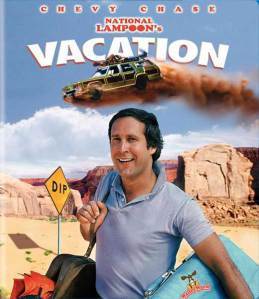 Day hits. Isn’t summer for hitting the pavement, for packing up the car, for seeing new sights (and maybe getting into new fights)? One Wicked is on the road right now and reports in from the Midwest.
Day hits. Isn’t summer for hitting the pavement, for packing up the car, for seeing new sights (and maybe getting into new fights)? One Wicked is on the road right now and reports in from the Midwest.
What do you pack? Where do you stay? How do you pass the time on eight-, ten-, twelve-hour drives? Do you bring a cooler full of food and a box full of snacks, or do you search out those out-of-the-way diners and ice cream stands? Has anybody traveled Route 66? What about traveling with kids, or traveling when you were a kid? Talk road trip tips and memories, Wickeds!
Edith: Yeah. I just drove 1000-plus miles alone (in two days) to southern Indiana. I’m a 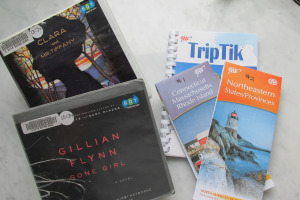 snack and lunch packer, because I’m no longer a by-the-side-of-the-road-camper and I keep in mind that motel bill. I checked out two audio books, GONE GIRL and CLARA AND MR. TIFFANY, that I’ve been wanting to read. I got my TripTik from AAA. Okay, I’m old fashioned: I like paper maps, I want to see on paper where I’m going in the long- and short-distance. I do have GPS on my phone, which helps on shorter trips. Tires and tank filled, I set out early Saturday morning and made it without major mishap.
snack and lunch packer, because I’m no longer a by-the-side-of-the-road-camper and I keep in mind that motel bill. I checked out two audio books, GONE GIRL and CLARA AND MR. TIFFANY, that I’ve been wanting to read. I got my TripTik from AAA. Okay, I’m old fashioned: I like paper maps, I want to see on paper where I’m going in the long- and short-distance. I do have GPS on my phone, which helps on shorter trips. Tires and tank filled, I set out early Saturday morning and made it without major mishap.
But it’s always good to stay alert for adventure. On Saturday, after driving 500-plus miles in ten hours straight, I checked into a Super 8 motel and had a glass of the white wine I had cleverly put in my cooler. Then I set out for a walk on a busy thoroughfare not even 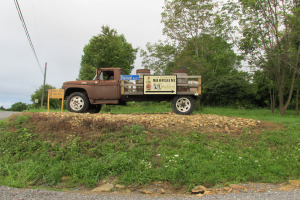 featuring sidewalks, but spied a road that led back and away from the fast-food bustle through fields of green: soybeans. Kept walking in the late day cooling air until I saw a sign for … Moonshine. Yes! I walked up that drive to Blackbird Distillery, did some tasting, chatted with the charming proprietor, and bought a bottle of peach moonshine to take home. Stay open for adventure!
featuring sidewalks, but spied a road that led back and away from the fast-food bustle through fields of green: soybeans. Kept walking in the late day cooling air until I saw a sign for … Moonshine. Yes! I walked up that drive to Blackbird Distillery, did some tasting, chatted with the charming proprietor, and bought a bottle of peach moonshine to take home. Stay open for adventure!
Barb: I love road trips! Last January, my husband and I drove to Key West where we stayed for the month and then back to Boston. We’ll do it again this year, staying for two months this time. I admit part of the reason I love road trips is because of my relatively recent hatred of air travel. It seems like every flight I take is delayed, crammed full of crabby people, including the flight attendants, and you get vague explanations about the “equipment.” On the road, you can throw whatever you think you might need in the car, leave when you want and go fast or slow. I’m pretty much the opposite of Edith in every way. No audio books, just music. We don’t pack any food ahead, and I can’t read paper maps and drive (maps require glasses and driving does not), so I love, love, love my GPS. I don’t go much of anywhere without it, even when I know where I’m going, because it keeps me from spacing out and passing exits. Two other apps are critical. The one that locates every Dunkin Donuts, especially important in the south where you don’t find them every half mile like you do in New England. What can I say? The coffee is good and the restrooms are clean. And an app called WAZE that alerts you to every cop, traffic jam, car-by-the-side-of-the road and anything else unusual. It’s uncanny.
 Liz: I love road trips too, much better than planes. I like the freedom of stopping whenever you want, changing up routes to see new places and generally feeling like an explorer. I’m a combination of Barb and Edith – a food-packing, book AND music (depending on my mood) listening, GPS-loving (I hate maps), coffee-app junkie, although it has to be Starbucks, not Dunkin. We travel with the pups a lot, and they mostly love road trips too!
Liz: I love road trips too, much better than planes. I like the freedom of stopping whenever you want, changing up routes to see new places and generally feeling like an explorer. I’m a combination of Barb and Edith – a food-packing, book AND music (depending on my mood) listening, GPS-loving (I hate maps), coffee-app junkie, although it has to be Starbucks, not Dunkin. We travel with the pups a lot, and they mostly love road trips too!
Edith: I’ll tell you, having Clara and Mr. Tiffany on audio made six hours pass so much easier. I’ve never listened to an audio book since Charlotte’s Web read by EB White himself on three cassette tapes, and that was probably twenty years ago (and yes, it made our annual road trips with my sons to visit their aunt in Quebec so much easier). The narrator keeping all the main characters’ voices separate is impressive!
Julie: I’m surprised that my fellow Wickeds didn’t mention the Malice road trip this year. I was only on one leg, but it counts! Since my parents and one of my sisters lives in Maryland, I have made the Boston to Annapolis trip so many times I can’t even count. What has changed is my companions on those rides. For a few years, it was my Boston-based sister and I. Then she got married and had twins, and auntie started riding with the kids in the middle row of the mini-van, or shotgun if my brother-in-law didn’t want to make the trip. The snacks haven’t changed over the years. Cheese-Its, grapes, beverages (some with caffeine for the adults). Twizzlers.
When it was the single sisters, we’d always bring lots of music. And on the New Jersey turnpike we’d always listen to Les Miserables. With the kids, it is geared more toward them. Suffice it to say, I am happy that Strawberry Shortcake days are behind us.
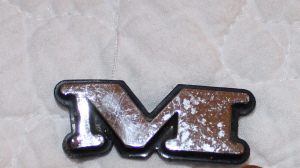 Sherry: The Wicked/Malice road trip sounded like so much fun I thought about flying up to Boston and riding back down here! I’m glad I came to my senses because I heard the last twelve miles were brutal! Since my parents were teachers, the summers my dad didn’t work somewhere, were for road trips: a three week tour to the West, and two week tour to the East — that trip became a three week trip when we were hit by a car in Louisville, Kentucky and had to wait for our car to be repaired (the M above fell off our car) and trips to Florida. We sang a lot and played the license plate game. Remember Stuckey’s? We always liked to stop at them. And you can’t be married to someone in the Air Force without long road trips every few years when moving.
Sherry: The Wicked/Malice road trip sounded like so much fun I thought about flying up to Boston and riding back down here! I’m glad I came to my senses because I heard the last twelve miles were brutal! Since my parents were teachers, the summers my dad didn’t work somewhere, were for road trips: a three week tour to the West, and two week tour to the East — that trip became a three week trip when we were hit by a car in Louisville, Kentucky and had to wait for our car to be repaired (the M above fell off our car) and trips to Florida. We sang a lot and played the license plate game. Remember Stuckey’s? We always liked to stop at them. And you can’t be married to someone in the Air Force without long road trips every few years when moving.
Readers: Tell us about your road trip trips and memories.
Filed under: Group posts Tagged: driving, road trip, Route 66, vacation

August 25, 2014
Living the Dream
By Julie, enjoying the waning days of summer in Somerville
I am days away from the deadline of my first Clock Shop Mystery. As I make that final lap of revisions and rethinking, I can’t help but remember that a year ago tomorrow I got the phone call that put this whole adventure in motion. In this year, I have signed a three-book deal, picked out a pseudonym, and am close to hitting send on my first manuscript. It is all, quite literally, a dream come true.
Thanks to my Wicked Cozy sistahs, I knew what to expect. And I have a cheering section in place for constant support. But there have been a few unexpected lessons along the way.

The Final Lap!
Just because it is a dream, that doesn’t make it easy.Writing a book is a challenging process. And all the advice in the world doesn’t get the word count to rise.
Writing needs breathing room. With a deadline months away, it is very tempting to let writing goals slip. But that is a mistake. Finishing a draft, and leaving time to take a breath before going back in is a necessary luxury.
It is easy to get lost in your book. After a few rounds of edits, I got turned around. What was the name of the guy with the hat? Is his backstory the same all the way through? This is when I brought in a ringer, aka a first reader. Jason Allen-Forrest is a cozy reader, a good friend, and an excellent reader. He gave me confidence to keep slogging through the next round of edits.
Every day, I remind myself how lucky I am. I am living the dream. How blessed am I?
Gentle readers, what lessons have you learned while living your dream?
Filed under: Julie's posts

August 22, 2014
Lessons from Dame Agatha
I blog on Live to Write/Write to Live every two weeks, sharing the blog with another group of fabulous women. Over on LTW/WTL, we are all different types of writers, but my topics frequently are about the mystery genre. I published this post on September 16, 2010. I hope you enjoy it.
Julie
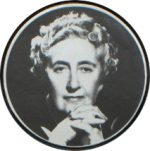
Happy Birthday (a day late) to Agatha Christie. She was born 120 years ago, and died in 1976. And yet–who had to ask who she was? Even if you aren’t a mystery reader, you’ve heard of her. She is still one of the top selling novelists of all time.
I’ve spent a lot of time pondering Dame Agatha’s craft. In 2009 I got my master’s degree, and my thesis was on Agatha Christie, her use of point-of-view and how it contributed to the genre. Trust me when I say, in order to get this topic approved I had to read a lot of critical essays, biographical materials, genre reflections, novels and short stories. And as a bonus I learned a lot about the craft of writing. These are some of the lessons Agatha Christie taught me:
Shake it up. Agatha Christie created several series characters–Hercule Poirot (with Hastings), Miss Marple, Tommy and Tuppence. She also wrote stand alones. She wrote short stories. She wrote plays. Most of her work was in the mystery genre. But, she didn’t keep repeating the same book. Instead she shook it up. Used different points of view. Took reader’s expectations and shook them up.
Be professional. In her autobiography, Agatha Christie reflected on writing The Mystery of the 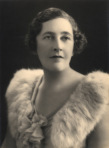 Blue Train, her least favorite novel. She was recently divorced, and writing had become her vocation, her means of supporting herself. She wrote about the challenge of writing when you don’t want to, and the importance of meeting deadlines.
Blue Train, her least favorite novel. She was recently divorced, and writing had become her vocation, her means of supporting herself. She wrote about the challenge of writing when you don’t want to, and the importance of meeting deadlines.
Work on your own terms. I love that Agatha Christie wrote the final book for Miss Marple and Hercule Poirot years before she was done writing the series. It was as if she knew she needed to write those books while she was still at the top of her game. Curtain is a brave way to end a series character, and it allowed her to end Poirot’s story on her own terms.
Just do it. By all accounts Agatha Christie was a very shy woman. She was famous in her own lifetime, which must have been uncomfortable. But she just kept going. She kept writing, stretching both herself and the genre.
And so Happy Birthday Agatha Christie. Thanks for the hours of reading enjoyment, and the writing lessons. I’m trying to decide which novel to reread in honor of your birthday. Which would you chose?
Filed under: Julie's posts Tagged: agatha christie, mystery

August 21, 2014
Edith’s Got Some News!
I have two piece of awesome, exciting, delightful news that I’ve been sitting on but now have permission to let loose on the world.
FIRST, Kensington Publishing has renewed my Local Foods Mysteries contract for two more books. This is immensely gratifying to me, and I hope to my readers. It feels like a validation from the publisher, pretty darn nice for a still-beginning author. I’ll be getting to work later in the fall on Compost Mortem, which takes place during March, with controversy surrounding locals vs. the nouvelle riche in town, the sudden death of a local chicken farmer, and avid volunteer Alexandra coming under suspicion of murder. It will release sometime in 2016.
SECOND, I’m heading out on a research road trip to Indiana Saturday. Why Indiana? Because I have a new three-book contract with Kensington Publishing for a Country Store cozy mystery series set in the beautiful, hilly part of southern Indiana known as Brown County! I’ll be writing under a brand-new pseudonym, Maddie Day (because the publisher wanted me to, that’s why). And I’m super, extremely, radically excited about the new gig. Let me give you the series blurb first:
 In the Country Store Mysteries, chef and carpenter Robbie Jordan remodels a country store full of antique cookware in fictional South Lick, Indiana, and turns it into a local breakfast and lunch establishment called Pans ‘N Pancakes. She doesn’t plan to have murder on the menu. But small-town secrets and bitter rivalries put sand in the batter and before Robbie knows it, her new life is a lot more complicated than she had expected.
In the Country Store Mysteries, chef and carpenter Robbie Jordan remodels a country store full of antique cookware in fictional South Lick, Indiana, and turns it into a local breakfast and lunch establishment called Pans ‘N Pancakes. She doesn’t plan to have murder on the menu. But small-town secrets and bitter rivalries put sand in the batter and before Robbie knows it, her new life is a lot more complicated than she had expected.
Doesn’t that sound like fun? And here’s a quick paragraph about Book One, tentatively titled Flipped for Murder (can any of you come up with a punnier title for me?):
Stella, the mayor’s difficult assistant, is found dead the night of the store’s grand reopening with one of Robbie’s trademark cheesy biscuits stuffed into her mouth, and the future of Robbie’s new life is threatened. Is the killer the competitor country store owner who wants to sabotage Robbie’s project? The former mayor who thinks Stella rigged the election? The new mayor with a tricky past whom Stella was blackmailing? Or someone else? Robbie uses her skills as a champion puzzle solver to salvage her business and help the small-town police put the murderer behind bars.
But really, you might ask, why Indiana? Well, I spent five happy years earning my

Maxwell Hall, IU Bloomington
doctorate at the flagship Indiana University campus in Bloomington, one that generations of Maxwells attended and of which my great-great-great grandfather was one of the founders (also: my great-grandfather was first dean of the IU Medical school, my grandfather was captain of the IU basketball team in 1916, and my own father was an undergrad there). Think huge university in a small town. You can walk or ride a bike everywhere. People are friendlier and talk more slowly than in the northeast. And neighboring Brown County is as hilly and pretty as Vermont.
The seed for this series was this: a fellow grad student named Benjamin  dropped out of the IU Linguistics PhD program in the late 1970s. With his girlfriend he bought a run-down country store in the town of Story, and fixed it up into a breakfast restaurant as well as a bed-and-breakfast establishment. They served whole-wheat banana walnut pancakes, which I make to this day, and which will figure prominently in my books. The Story Inn still exists, although my friends don’t own it any longer.
dropped out of the IU Linguistics PhD program in the late 1970s. With his girlfriend he bought a run-down country store in the town of Story, and fixed it up into a breakfast restaurant as well as a bed-and-breakfast establishment. They served whole-wheat banana walnut pancakes, which I make to this day, and which will figure prominently in my books. The Story Inn still exists, although my friends don’t own it any longer.
When I was imagining how this series might play out, I conjured up a twenty-seven-year-old woman named Robbie Jordan who grew up in Santa Barbara, California. Three years after Robbie moves near her mom’s sister Adele in Brown County to work as a chef, Robbie’s carpenter mom dies suddenly. Robbie uses her savings and a small inheritance to acquire the country store.

Bean Blossom covered bridge
I’ve been having a ball remembering and researching phrases and pronunciations from that part of the country. “I might could do it for you.” “Faster than green grass through a goose.” “I can’t eat another bite ’cause I’m as full as a tick.” Actual small town names are awesome: French Lick, Bean Blossom, Gnaw Bone, Floyds Knobs, and so on. When I saw South Lick Creek on a map, I knew that was the name of my fictional village.
I’ve already written about three-quarters of the first book and I’m delighted with the secrets, secondary characters, and food that’s popping up. Meat gravy for the biscuits, but also miso gravy for the green-eyed vegetarian lawyer that Robbie might just be having some feelings for. The big-haired, bigger-than-life mayor Corrine and her high heels. The secret of the Italian father Robbie never met. And more. You can expect it to release in the fall of 2015.
I’m leaving Saturday to spend a week in Bloomington and Brown County soaking up the local culture and dialect and, yes, spending a couple of nights in the Story Inn. I can’t wait. Whole-wheat banana walnut pancakes, anyone?
Readers: Any title help for me? I need three! And if anybody has dialect tips for southern Indiana/northern Kentucky, please share.
Filed under: Edith's posts Tagged: Bean Blossom, Bloomington, Brown County, Compost Mortem, Country Store Mysteries, Indiana University, Kensington Publishing, local foods mysteries, Maddie Day, Maxwell Hall, Story Indiana, Story Inn

August 20, 2014
Wicked Wednesday: Who does it best?
It’s Wicked Wednesday, when we all weigh in on a topic. Keeping with our theme of “themes in cozies,” today we’re talking about the toughest theme a cozy tackled that stuck with us, and which authors do it best. So Wickeds, your thoughts?
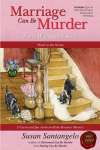 Barb: I love Susan Santangelo’s Baby Boomer Mysteries– Retirement Can Be Murder, Moving Can Be Murder, Marriage Can Be Murder and Class Reunions Can Be Murder. Santangelo combines a hugely likeable protagonist with a fabulous supporting cast, as well as great voice and writing. She also tackles serious themes about the changes our outsized generation marches through as we age–with a very light touch. The whole is greater than the sum of the parts, and every book delivers more than it promises.
Barb: I love Susan Santangelo’s Baby Boomer Mysteries– Retirement Can Be Murder, Moving Can Be Murder, Marriage Can Be Murder and Class Reunions Can Be Murder. Santangelo combines a hugely likeable protagonist with a fabulous supporting cast, as well as great voice and writing. She also tackles serious themes about the changes our outsized generation marches through as we age–with a very light touch. The whole is greater than the sum of the parts, and every book delivers more than it promises.
Jessie: I really like the way Alexander McCall Smith explores cultural changes and what’s at stake when outside values begin to impact communities. His #1 Ladies’ Detective Agency books do such a wonderful job of celebrating the positives of traditional Botswana while acknowledging that changes are occurring.
 Edith: Julia Spencer-Fleming writes sort of cozy. In her recent One Was a Soldier, she beautifully, painfully, tenderly tackles issues of returning vets from the Iraqi war, among whom is her protagonist, Clare Fergusson. She said she took extra long to write it because she wanted to give veterans the deep and respectful treatment they deserve.
Edith: Julia Spencer-Fleming writes sort of cozy. In her recent One Was a Soldier, she beautifully, painfully, tenderly tackles issues of returning vets from the Iraqi war, among whom is her protagonist, Clare Fergusson. She said she took extra long to write it because she wanted to give veterans the deep and respectful treatment they deserve.
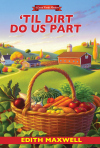
 Sherry: I didn’t have to look far to find two authors who I think do this brilliantly, Liz Mugavero and Edith Maxwell. Both of them are passionate not only in their fictional lives but also in their real lives about their topics. For Liz it’s animal rescue and feeding animals organic foods. For Edith it’s local organic foods. Both of them work the topics into their plot lines without being preachy or shoving it down the reader’s throat.
Sherry: I didn’t have to look far to find two authors who I think do this brilliantly, Liz Mugavero and Edith Maxwell. Both of them are passionate not only in their fictional lives but also in their real lives about their topics. For Liz it’s animal rescue and feeding animals organic foods. For Edith it’s local organic foods. Both of them work the topics into their plot lines without being preachy or shoving it down the reader’s throat.
Liz: Aww Sherry, you’re so sweet :) Edith stole my answer – I was going to say Julia Spencer-Fleming as well. She tackles a lot of tough topics with grace and brilliance. And I have to add Barb Ross to my list. She covers inclusion and the struggle of fitting in flawlessly. Similarly, Jessie Crockett tackles one of the toughest subjects ever so well – family.
Readers: Who do you nominate for tackling a tough subject in a cozy, and why?
Filed under: Wicked Wednesday Tagged: #1 Ladies' Detective Agency, 'Til Dirt Do Us Part, A Biscuit A Casket, Alexander McCall Smith, Baby Boomer Mysteries, Botswana, julia spencer-fleming, One was a Soldier, Susan Santangelo

August 19, 2014
The Detective’s Daughter — Seventy-eight Candles
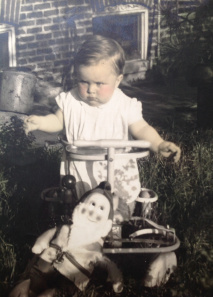 Friday is my dad’s birthday. It’s been eight years since he left the world we know, but that won’t stop me from celebrating. I usually make spaghetti and meatballs and we play 500 Rummy after dinner. Growing up my grandmother would start planning her only child’s birthday the week before. Every year it was pretty much the same. The night of his birthday we’d go to Enzee’s on Ritchie Highway for dinner, eat pasta and watch as my dad opened his present of a shirt and matching tie we’d bought at Buchman’s on Light Street. Afterwards, we would go home and play cards. It was simple, predictable, and I enjoyed every moment of it.
Friday is my dad’s birthday. It’s been eight years since he left the world we know, but that won’t stop me from celebrating. I usually make spaghetti and meatballs and we play 500 Rummy after dinner. Growing up my grandmother would start planning her only child’s birthday the week before. Every year it was pretty much the same. The night of his birthday we’d go to Enzee’s on Ritchie Highway for dinner, eat pasta and watch as my dad opened his present of a shirt and matching tie we’d bought at Buchman’s on Light Street. Afterwards, we would go home and play cards. It was simple, predictable, and I enjoyed every moment of it.
One of my dad’s birthdays was particularly memorable. Summer days were much longer back then, they slowly evolved into night and not many of us noticed. We continued on what we were doing no matter the time of day. In the evening my grandfather would haul out our portable television set, attach it to an extension cord and put it on the top step. Our neighbors did the same thing. The block was lined with people sitting out watching TV on their aluminum folding chairs. Mom would give my sister and me a bath and do our hair in braids and then sit us on the steps much like the television. I sat in my Pop-Pop’s lap while my sister stayed closer to the screen. It was her job to change the channels.
It was a night much like all the other summer nights. Mom sat reading a book, my grandmother crocheted, and Dad was in bed because he wasn’t on summer vacation. He had to work the next day even if it was his birthday. Pop-Pop had just unplugged the television and we’d barely walked into our kitchen when Dad barreled down the steps and raced out the front door. I’d never seen him move that fast. Mom, my grandparents, and I all rushed to the front door to see what was happening. Dad was in the middle of the street, kneeling on the back of a man who was crying.
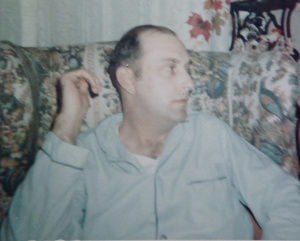 “You trying to steal my car?” Dad shouted. We couldn’t hear the man’s response, only his sobbing. Dad pulled him up by his hair and whipped out a pair of handcuffs, seemingly from thin air. Where did they come from? Dad was only wearing pajama bottoms and a tee shirt! Mom tried to shuffle me back inside, but I wasn’t missing this.
“You trying to steal my car?” Dad shouted. We couldn’t hear the man’s response, only his sobbing. Dad pulled him up by his hair and whipped out a pair of handcuffs, seemingly from thin air. Where did they come from? Dad was only wearing pajama bottoms and a tee shirt! Mom tried to shuffle me back inside, but I wasn’t missing this.
By the time Dad dragged this man to our steps, a shop owner from the corner shop appeared with an explanation. It seemed this young man worked for the shop owner and he’d sent the man to retrieve something from his car. He gave him the keys to a black Cadillac. Dad’s Cadillac was dark blue. The young man mistook Dad’s car for his boss’s car. Everyone was invited in for coffee and some sort of sweet treat my grandmother whipped up. Dad went to bed uninterested in making amends and claiming the young man was still a punk. No one really knew what kind of shop the guy on the corner ran. It wasn’t long after that the shop closed.
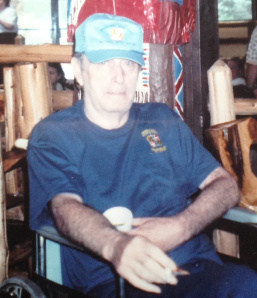 It was the most eventful birthday I remember. The neighbors talked of it long after Dad had shrugged the episode off. It was the first of many times I would witness Dad’s detective persona.
It was the most eventful birthday I remember. The neighbors talked of it long after Dad had shrugged the episode off. It was the first of many times I would witness Dad’s detective persona.
Happy birthday, Dad. I hope wherever you are you’re enjoying spaghetti and winning at cards.
Filed under: The Detective's Daughter Tagged: Balitmore City, Baltimore police detectives, Buchman's, Enzee's, Seventy-eight candles, The Detective's Daughter

August 18, 2014
Can a Panster Become a Plotter — Part Two
By Sherry Harris
Last November I wrote a blog titled “Can a Panster Become a Plotter”. In it I said I’d write an update in August. Well, it’s August and my deadline is only days away. So here’s what happened:
I was struggling with writing the required synopsis last November but two Barbs came to the rescue — Barb Ross and Barb Goffman — read “Can a Panster Become a Plotter” to find out how. I wrote a seven page synopsis for book two — Deal or Die. After I sent it off to my editor I stuck it in the proverbial drawer aka a computer file and forgot about it. I started writing the book. Things were going swimmingly and then I got to the middle. What is it with me and the middle? I really, really hate the middle. (See previous panster blog!)
 So I did what I usually do and wrote the end of the book. After I finished that I was at a loss of what to do next. Then I remembered the synopsis. I pulled it out, dusted it off, and read through it. Oh, yes, there in the synopsis was a middle or at least part of the middle. And layers and characters that I’d completely forgotten about. Lest I made this process sound too easy it was more like trying to weave an intricate spider web back together.
So I did what I usually do and wrote the end of the book. After I finished that I was at a loss of what to do next. Then I remembered the synopsis. I pulled it out, dusted it off, and read through it. Oh, yes, there in the synopsis was a middle or at least part of the middle. And layers and characters that I’d completely forgotten about. Lest I made this process sound too easy it was more like trying to weave an intricate spider web back together.
When that was finished I had a crisis of confidence. I hated it and thought it had no voice, no humor, no nothing. So once again I turned to the other Wickeds. They encouraged me, told me to tell to the editor in my head to shut up (thank you Edith), and asked what they could do to help. Then Barb Ross said this:
If you either have voice or you don’t, then you DO have it, as Tagged (Tagged For Death) proves.
A couple of suggestions.

Barb with more great advice. (Photo by Meg Manion Photography)
If voice is elusive, go back and read a part of Tagged you feel is strong. It’s like a singer listening to a pitch pipe to find the right key. Do this as many times as you need to. You might even read a part of Tagged that’s similar to what you’re writing now–discovery, action, denouement, etc.
I firmly believe voice = confidence and confidence = voice. Voice is what convinces the reader to give their consciousness over to the storyteller. The reader needs to feel the storyteller is confident in her ability to tell the story in order to be willing to go on the journey. Therefore, problems with voice often mask unresolved issues within the story. If the author has problems with the story she’s telling, that undermines confidence and shuts down voice. Ask yourself if there are any issues you need to address in order to have confidence in the story you’re telling.
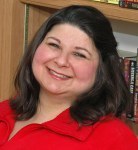 After rewriting I turned the book over to Barb Goffman to edit. She pushed me to make sure the reader knew what Sarah was thinking and seeing. She wanted more reaction to the events going on around Sarah. Barb also pointed out what was well written and amusing.
After rewriting I turned the book over to Barb Goffman to edit. She pushed me to make sure the reader knew what Sarah was thinking and seeing. She wanted more reaction to the events going on around Sarah. Barb also pointed out what was well written and amusing.
I’m going through another round of edits — the voice issue wasn’t the mountain I’d made it out to be. I’ve decided I’m a hybrid writer — part panster and part plotter. In the next few days I’ll be turning in this manuscript. And then it starts all over with writing the synopsis for Murder As Is. Stay tuned…
Filed under: Sherry's posts Tagged: Barb Goffman, Barbara Ross, Can a Panster Become a Plotter, pantster, Tagged for Death

August 15, 2014
Ask the Expert — C. Michele Dorsey Family Law Attorney
Sherry: Michele thanks so much for taking time from your busy schedule to join us today. When I was writing Tagged for Death I had a question about divorce laws in Massachusetts. I turned to Michelle for advice.
Name: C. Michele Dorsey, but you can skip the “C.”
Area of Expertise: I am a Family Law Attorney, Mediator and Writer
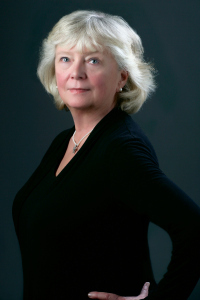 How did you end up in Family Law?
How did you end up in Family Law?
I was a nurse before I became a lawyer. I think working with people in physical pain prepared me for representing people who are experiencing a different kind of pain. People who are going through a divorce face the loss of family and must grieve. My experience as a nurse taught me how to listen, be compassionate and when to tell someone it’s time to stop licking their wounds and start living life again. I use the same skills as a lawyer.
What is one thing we should know about your area of expertise?
Cases are often resolved these days through Alternative Dispute Resolution, “ADR” (mediation, arbitration, collaborative law, etc.), rather than litigation. If you are going to use ADR in your story, understand it is very different from litigation. The first scene in “The Wedding Crashers” is a mediation. It’s very funny, but it also gets it right.
What do people usually get wrong when writing about family law issues?
People often get a whole lot wrong when writing about family law issues, which is problematic because half of the population, including your readers, are divorced and will catch you if you are wrong. It’s easy to check the law for your jurisdiction with so much information available online. Knowing whether your state still has fault grounds, allows certain claims for alimony and how marital property is divided will lend credibility to your story.
Is there a great idea you’d love to share?
If you are a writer looking for ideas about conflict, human drama and relationships, spend a morning in your local family court listening. What unfolds every day in the courtroom is an amazing array of human tragedy, with an occasional triumph. Your notebook will be full in a few hours.
What are you working on?
 My agent is closing a deal on a mystery I wrote set in St John, USVI, but for now my lips are sealed. I am working on a mystery about a divorce lawyer who returns home from court one day to find her husband dead in their bed with a pair of black panties between the sheets that don’t belong to her. I am also writing a nonfiction book to help people choose an enlightened path to divorce.
My agent is closing a deal on a mystery I wrote set in St John, USVI, but for now my lips are sealed. I am working on a mystery about a divorce lawyer who returns home from court one day to find her husband dead in their bed with a pair of black panties between the sheets that don’t belong to her. I am also writing a nonfiction book to help people choose an enlightened path to divorce.
Do you use your expert knowledge in your writing?
Yes, in many ways. For one thing, I am always filling the well with potential stories when I am in court. I also listen to people, noting how they express themselves, to help with writing dialogue. A family law case is really a story unfolding with all of the elements of conflict evolving much like a plot in a book, which has helped me with structure.
Oh, and it always helps to include a nasty lawyer in a book. They make delicious and vicious villains. I wonder why. But that would be for another conversation.
Thanks for inviting me to your wonderful Wicked Cozy Authors Blog.
C. “Michele” Dorsey writes mysteries, romantic comedy, nonfiction and an occasional poem. She is also a lawyer, mediator and adjunct professor of law, who finds inspiration and serenity on the island of St. John, USVI, where her latest mystery is set. Michele was a finalist in St. Martin’s Minotaur Books/Malice Domestic Competition in 2013 for No Virgin Island, in 2012 for Oh Danny Girl, and in 2004 for My Pink Slippers.
Readers: Do you have a question about family law for Michele? She’ll be stopping by throughout the day to answer them.
Filed under: Ask the Expert Tagged: Alternative Dispute Resolution, C. Michele Dorsey, Family law, Malice Domestic Competition, Mediator, St. John, USVI










